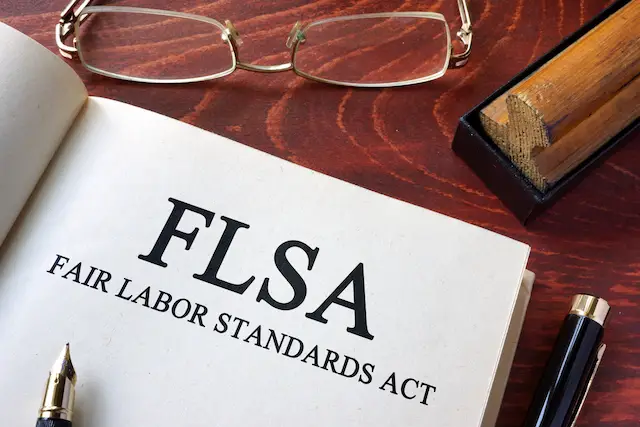Public Law 93-259 amended the Fair Labor Standards Act (FLSA) in 1974 to extend coverage by the minimum wage and overtime provisions of the FLSA to Federal Employees. The regulations have been revised a number of times, most recently in September 2007 when major changes to the exemption criteria were established.
In the Federal Register for Monday, 21 November 2016, a proposed rule is being issued by the U.S. Office of Personnel Management (OPM) to make another significant change to the FLSA regulations that apply to Federal employees and employers.
The proposed rule, if made effective as written, will bring OPM’s regulations into alignment with those issued by the U.S. Department of Labor (DOL) that apply to state and local governments, and profit making and non-profit organizations across the United States.
The FLSA was established to cover all employees, but provided for the exemption of positions that meet certain requirements. In the Federal workforce, the three primary exemption categories pertain to employees who are executives (supervisors and managers), administrative employees (e.g., those in human resources, budget and similar occupations), or professional employees (e.g., physicists, librarians, engineers, etc.).
“One of the criteria required to qualify as an exempt employee is that the employee must be paid a certain salary level.” In rules that were issued in May 2016, DOL raised that amount to $47,476 per annum for non-Federal employees. The proposed rule OPM is issuing would raise the current rate found at 5 C.F.R. § 551.203 from $23,600 to the rate established by DOL at $47,476.
Provisions
Two other provisions are contained in the proposed regulations.
The first one continues the three exceptions to the requirement that employees must be paid above a certain salary in order to be exempt. These exceptions apply to those: who are performing different work or duties for a temporary period of time; who are performing work in a foreign location for a full work week or more; and who are engaged in the practice of law or medicine.
The second provision is completely new and like the regulations issued by DOL provides for an adjustment to the minimum salary level beginning in January 2020 and continuing every three years thereafter. This provision would allow the minimum salary level to remain at “…the 40th percentile of weekly earnings of full-time non-hourly workers in the lowest-wage Census Region in the second quarter of the year preceding the update….”
Potential Impact
What would be the impact of such a change? While the potential impact in the private sector has raised much concern and consternation among non-Federal employers, it appears that there should be a relatively smaller impact on Federal employers.
The implementation date for the DOL regulations is 1 December 2016, and is fast approaching. While most non-Federal employers have been working busily to comply, at least two lawsuits have been filed, including the participation of 21 State Governments, to prevent implementation of the new salary level.
The new minimum salary level tends to fall somewhere in the GS-7 salary range in most Federal locality pay schedules. And the three exemption categories listed above tend to take effect at the GS-9 or higher grade levels, which means if an employee fully meets the requirements for exemption as an executive, administrative or professional employee, there should be little impact as a result of this change. However, the change may have more impact on those paid under WS, WD or WN pay scales, the rates paid to Wage Supervisors and Production Facilitating Jobs.
While these proposed regulations are out for comment only at this time – comments are due to OPM on 21 December 2016 – this is a good time for supervisors and managers to work with their human resources staffs to ensure that all employees are properly identified as covered by (Nonexempt) or not covered by (Exempt) the FLSA provisions.


